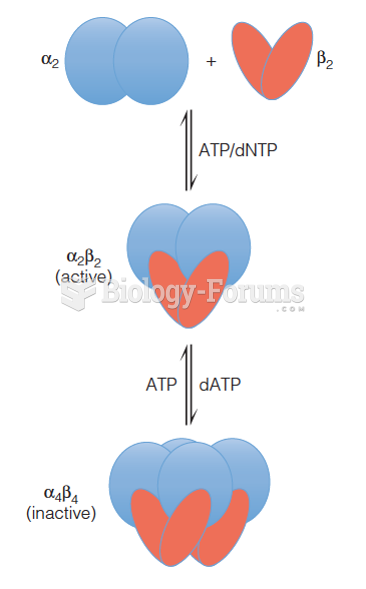|
|
|
Human stomach acid is strong enough to dissolve small pieces of metal such as razor blades or staples.
If you could remove all of your skin, it would weigh up to 5 pounds.
The use of salicylates dates back 2,500 years to Hippocrates's recommendation of willow bark (from which a salicylate is derived) as an aid to the pains of childbirth. However, overdosage of salicylates can harm body fluids, electrolytes, the CNS, the GI tract, the ears, the lungs, the blood, the liver, and the kidneys and cause coma or death.
Carbamazepine can interfere with the results of home pregnancy tests. If you are taking carbamazepine, do not try to test for pregnancy at home.
More than nineteen million Americans carry the factor V gene that causes blood clots, pulmonary embolism, and heart disease.







![]Genetic regulation of the ara operon\\\\](https://biology-forums.com/gallery/46/medium_671907_22_02_23_10_19_16_46252655.gif)